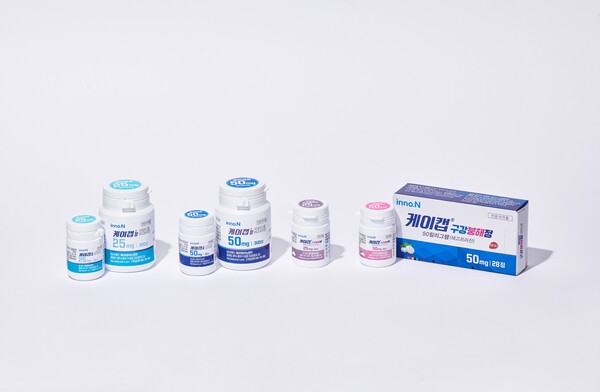HK inno.N has won a second appeal in its ongoing patent dispute over K-CAB (tegoprazan), its blockbuster gastroesophageal reflux disease (GERD) treatment.
The patent court of Korea upheld the ruling of the Intellectual Property Trial and Appeal Board (IPTAB), the company announced Thursday, affirming that HK inno.N’s compound patent remains protected until 2031.

The decision delivers a blow to generic challengers, who had argued that the extended patent should only apply to K-CAB’s original indications—erosive and non-erosive GERD—and not to additional approvals granted later.
The court disagreed, ruling that K-CAB’s use in Helicobacter pylori eradication falls under the same acid-related disease category, as it relies on the same mechanism of acid suppression.
“The ruling reinforces that patent term extensions must be interpreted in line with the drug’s overall therapeutic use, not narrowly limited to the first approved indications,” an HK inno.N official said.
K-CAB, classified as Korea’s 30th domestically developed new drug, is part of the P-CAB (potassium-competitive acid blocker) class. Since its market debut in 2019, it has expanded indications and formulations, racking up nearly 200 billion won ($138 million) in outpatient prescription sales last year, securing its position as Korea’s top-selling peptic ulcer treatment.
HK inno.N holds two key patents on the drug: a compound patent, now extended to Aug. 25, 2031, and a crystalline form patent, valid until March 12, 2036. The original expiration date for the compound patent was Dec. 6, 2026, but HK inno.N successfully extended it based on the time required for research, development, and regulatory approval.
Generic manufacturers have been maneuvering to enter the market as early as 2026. To clear the way for their own versions, they filed a scope confirmation trial, arguing that the extended patent should not apply to K-CAB’s later-approved indications. The patent court’s decision shuts down that strategy—at least for now.
Represented by powerhouse law firm Kim & Chang, HK inno.N has now prevailed in both the first-instance IPTAB ruling and the second-instance appeal at the patent court. However, another battle looms. The company is currently appealing a loss in a separate lawsuit concerning K-CAB’s crystalline form patent.
HK inno.N remains confident. “This ruling is a crucial win—not just for us, but for the entire domestic pharmaceutical industry,” the company official said. “We will continue to defend our patents and maximize the value of Korean-developed new drugs."
Related articles
- HK inno.N's GERD drug enters Australian and New Zealand markets
- HK inno.N launches GERD drug K-CAB in 6 more Latin American countries
- Jeil Pharm's Jaqbo falls short in Korea’s booming P-CAB market with weak 1st-month sales
- HK inno.N’s GERD treatment K-CAB approved in Malaysia
- Korean pharmas race for generic P-CAB market amid Takeda's uncertain future for Vocinti
- HK inno.N moves topical JAK inhibitor into phase 2 for atopic dermatitis
- HK inno.N becomes largest shareholder of Japan’s RaQualia to boost R&D, K-CAB expansion
- HK inno.N’s K-CAB tops standard acid treatment in US reflux trials, FDA filing next
- HK inno.N expands GERD drug footprint in 6 North African countries
- HK inno.N wins phase 3 nod for eczema drug in dogs to take on Zoetis' Apoquel
- Phathom blocks generics with FDA win, paving way for HK inno.N’s rival acid reflux launch in US

